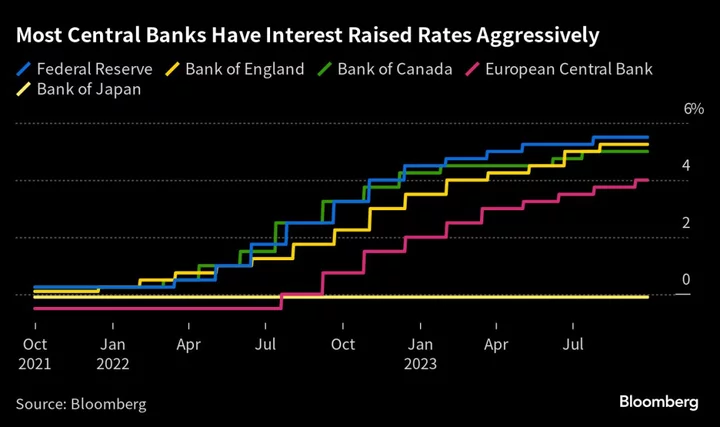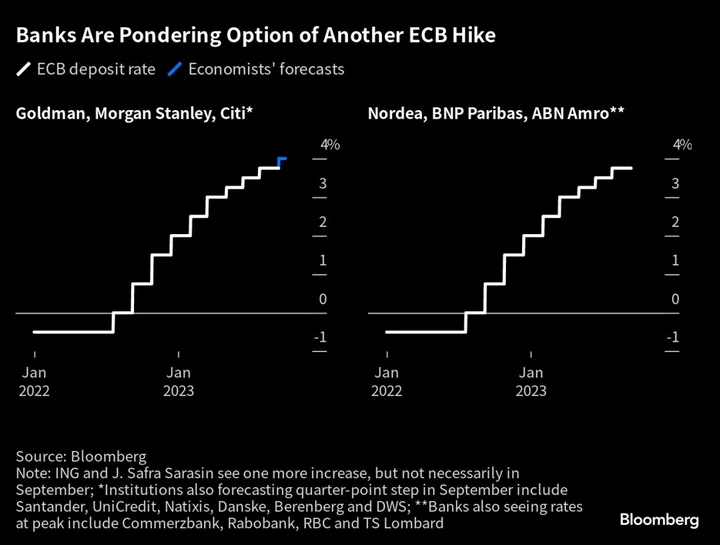Japan’s biggest brokerages expect yen corporate bond sales to slow in the fiscal second half started this month after a deal rush in the first half, as rising borrowing costs begin to discourage potential issuers.
The nation’s five largest securities companies see debt issuance decelerating to ¥4.9 trillion ($33 billion) to ¥6.5 trillion in the coming six months, according to a Bloomberg survey over the past week. That would follow ¥9.09 trillion in sales in the first half, the highest since 2019 for that period.
Japanese corporate bond yields have risen to the highest since 2011 as investors bet that the central bank may end its super-loose monetary policy in the months ahead. Companies rushed to sell debt in the first half before coupons rise further, but rates have increased to levels that are prompting some corporate treasurers to consider pausing on debt fundraising.
“If issuance conditions deteriorate further with higher costs, it’s very likely that issuers will turn to loans and other financing methods,” said Hisashi Kawada, executive director of debt capital markets at Nomura Securities.
For the fiscal year as a whole, the five brokerages predict that sales will climb to ¥13.5 trillion to ¥15.5 trillion, up from ¥13.1 trillion in fiscal 2022. Yields on Japanese corporate bonds touched 0.969% last week, the highest since May 2011, according to a Bloomberg index.
Investors will also be watching whether any escalation in the Israel-Hamas conflict affects credit markets, particularly if neighboring countries get involved. Caution about the impact of the war may weigh on issuance of longer-dated yen corporate bonds, according to some managers at the brokerages surveyed.
Also read: Appetite for Japan Credit Skews Toward Shorter Maturities on BOJ
“If geopolitical risks increase further in Israel’s neighboring countries, the impact on the global economy could be significant and a recession-like situation could be expected,” said Masahiro Koide, joint head of the products business division at Mizuho Securities. “We may see some deals requiring cuts in maturities or being forced to make other adjustments in the terms.”
--With assistance from Takahiko Hyuga.









